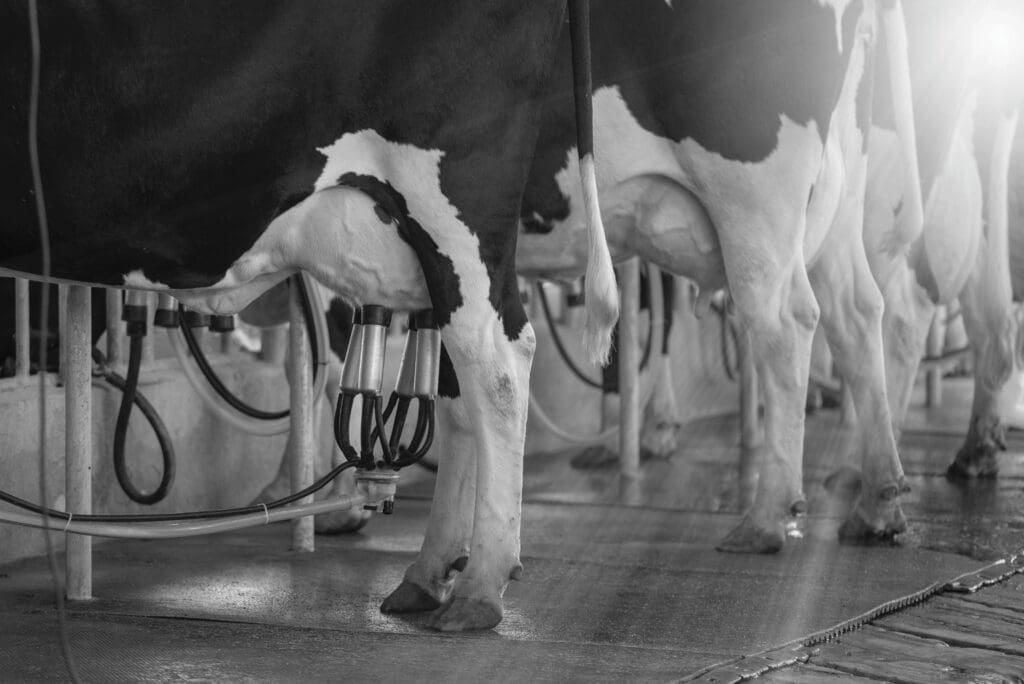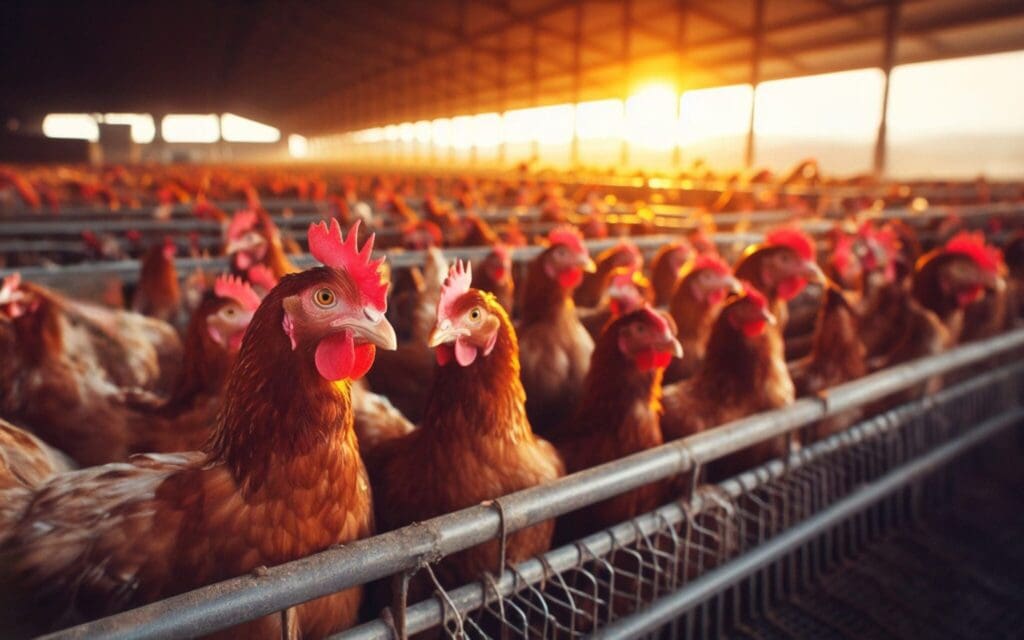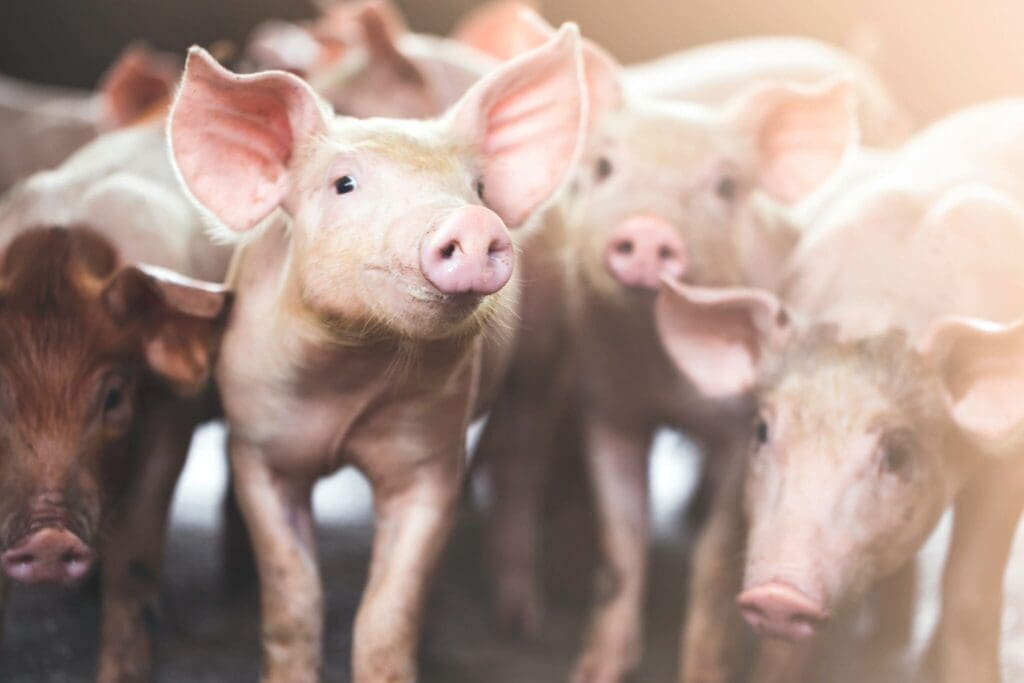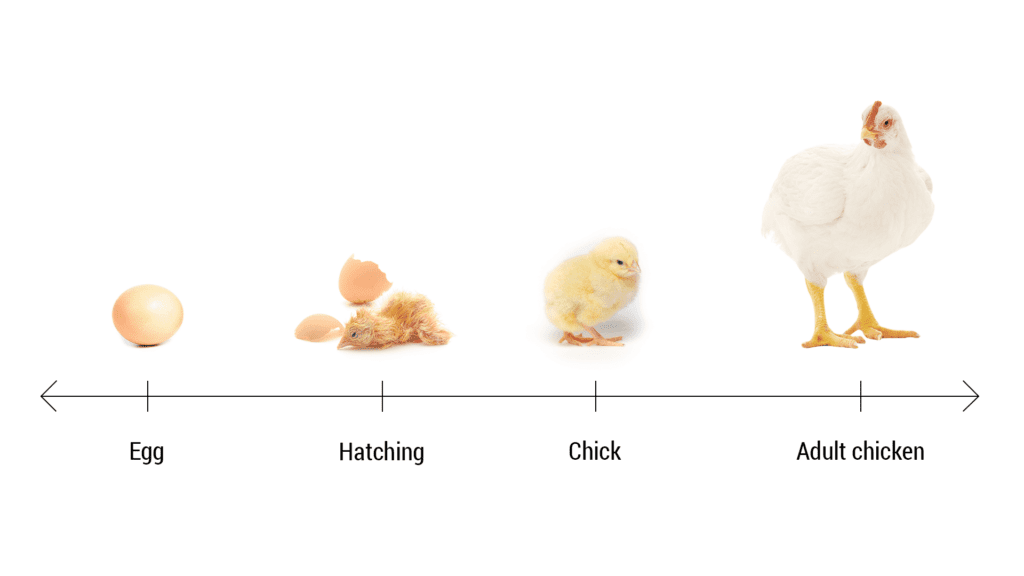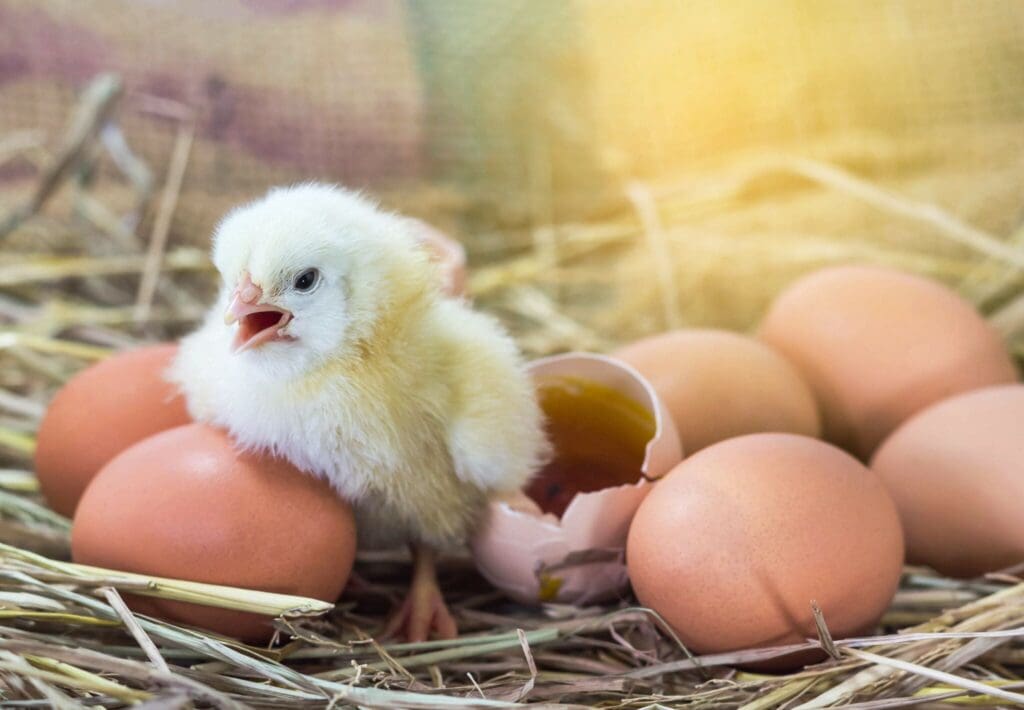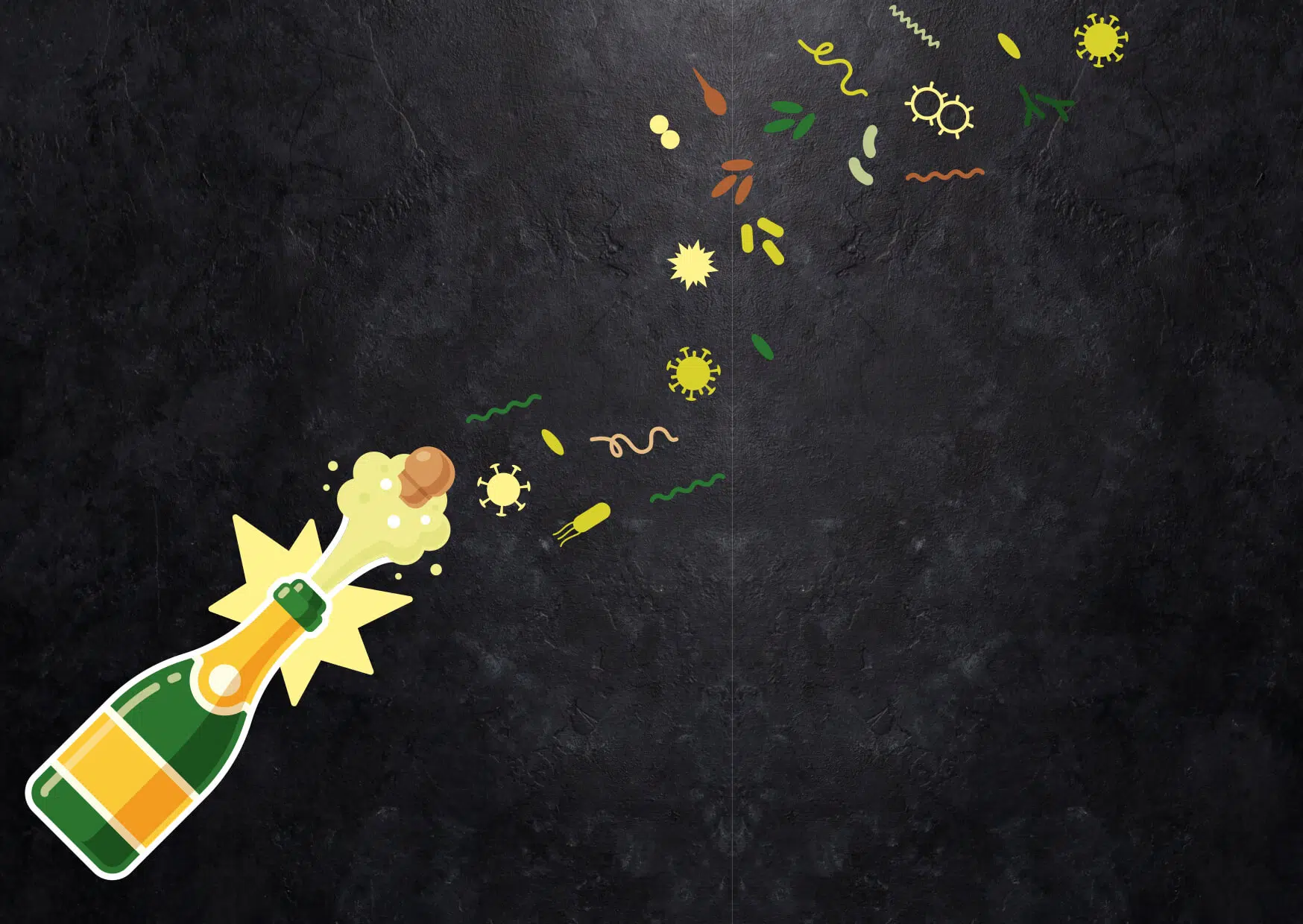How has the COVID-19 pandemic left you so far? With your glass half full, half empty, or are you leaning towards just plain empty? Whatever the case, livestock immunity will be vital to keep your farming enterprise’s cup full to the brim during 2021. Here are some tips on how to fill your livestock immunity glasses (and keep them filled) on-farm.
We need to approach our livestock’s immunity with the same gusto as when we poured champagne to mark the end of 2020. We cannot make do with a half-full or empty glass when it comes to immunity. By ensuring a functional and ready immune system in our livestock, we can benefit from the production and reproduction festivities set to take place during 2021. Figure 1 illustrates how to optimise (in green) the immunity of your livestock, while other factors (in black) may weaken their immune status. When an animal’s immune system is challenged, resources are channeled away from the two most profitable areas on-farm: growth (production) and reproduction.
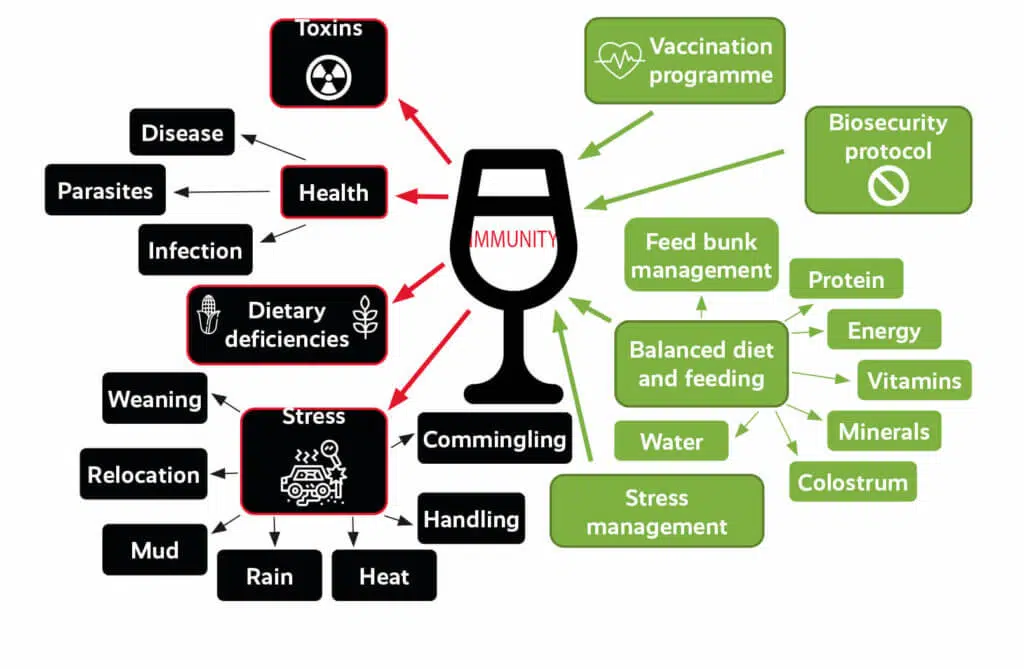
Vaccination
It is essential to plan a vaccination programme with a local veterinarian that is specifically suited to your farm. Different areas are challenged with different diseases, so customising a vaccination schedule will ensure that the animals on your farm are optimally protected for the disease challenges they will most probably face. Vaccination allows the animal’s immune system to build up its own so-called ‘memory’ of a disease, which will help it fight disease better if exposed to it in future. Vaccinations should be administered in the correct manner and at the right time to be effective in your herd.
Biosecurity
A lack of biosecurity on a farm may cause animals to face health challenges that could have been prevented. Biosecurity measures are implemented to prevent the introduction of disease-causing agents onto your farm that could jeopardise the health status of your resident herd. When kicking off 2021, your biosecurity programme need not be an exhaustive list of new to-dos but can be the gradual implementation of measures over time. For example, before introducing new stock to your herd, keep them in a separate camp, equipped with its own water supply and feed trough. This serves as a control point where these animals can be tested for disease, preventing your existing herd being exposed to any immune challenges they might introduce.
Nutrition
Animals that experience nutritional deficiencies may be immunocompromised because various bodily systems are not able to function properly. Nutrients such as energy, proteins, vitamins, and minerals should be supplied to the animal in the right quantities throughout the year for optimal production and reproduction to occur. We should also ensure that the immune system of youngstock is fighting fit from the start. The immune system of a young ruminant is underdeveloped and, therefore, unable to provide optimal levels of protection against the disease challenges its new environment poses. Colostrum, which is rich in maternal antibodies, is vital for the lifetime production of the young animal. Within 12 hours of birth, youngstock should consume approximately 10% of their body weight in colostrum. Another essential nutrient is water, which is consumed in large quantities. Water sources should be tested, monitored, and cleaned on a regular basis. Water contaminated with bacteria will place further pressure on the animal’s immune system.
Feeding
Animals that aren’t fed regularly tend to overeat in one sitting, which can cause digestive disorders such as acidosis. Acidosis can cause damage to the rumen, which can lead to the infiltration of unwanted bacteria and toxins into the circulatory system, predisposing it to disease. Mycotoxins are toxins produced by fungi that may be present on pastures, on field crops, or in harvested forage or grains that have been stored. These are also important to consider as they pose immune challenges to the animal.
Any event (albeit due to environmental conditions or from human activities) that causes an animal to stress may put strain on their immune system. For example, during heat stress, a lot of blood is directed away from the internal organs toward the peripheral organs, such as the skin, for the animal to dissipate heat. This, however, has a negative implication for the intestines; due to reduced blood flow, the intestinal barrier integrity can be challenged, which can lead to infection. Rain should also be considered an immunity challenge. Not only do wet and muddy conditions provide ideal conditions for bacteria to thrive and multiply, but excessive moisture can cause hooves and claws to become soft and susceptible to cracking and infection. This would pose another immune challenge to the animal, hampering its production.
Cheers to 2021!
Will 2021 have you caught up in an immunity pandemonium, or will you be boasting on the production podium? By using these tips, you will be able to charge the livestock immunity glass! Cheers!
Ruminant researcher
